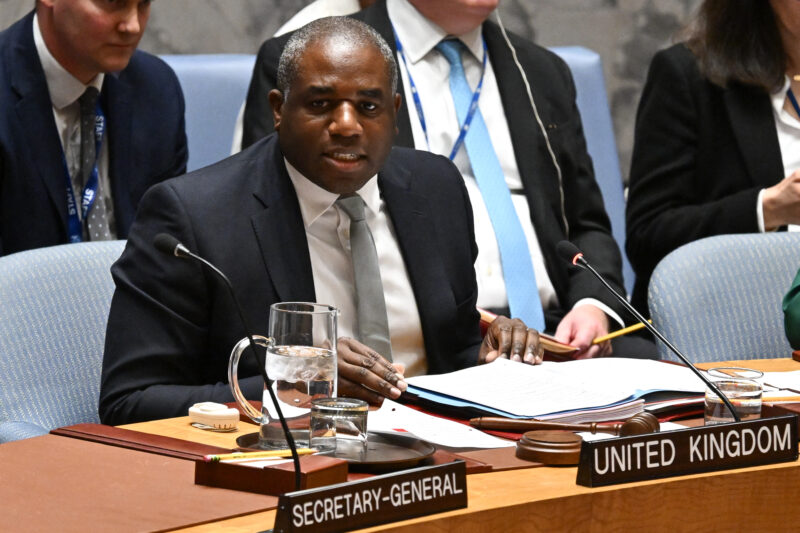Kyrsten Sinema’s consistency on reform — in the U.S. and in Israel
The Arizona Independent said proposal to weaken Israel’s Supreme Court would be ‘a complete breakdown of separation of powers’ but backs some reform

Michael Brochstein/Sipa via AP
U.S. Senator Kyrsten Sinema (D-AZ) seen speaking during the American Israel Public Affairs Committee (AIPAC) Policy Conference in Washington, DC.
After Arizona Democrats publicly censured Sen. Kyrsten Sinema (I-AZ) last summer for her vote to maintain the filibuster, the first-term senator asserted the importance of checks and balances in Washington and pledged not to overturn the storied Senate institution that requires 60 senators to vote to move forward with legislation.
So when she told Jewish Insider on Thursday that one major component of Israel’s proposed judicial reforms would be “a complete breakdown of separation of powers,” she spoke from experience as a senator who has sought to maintain some semblance of balance in a deeply divided Washington.
“Most of us who believe in democracy would be concerned about a proposal that would allow the Knesset to overturn the Supreme Court,” Sinema said in an interview in her Senate hideaway, a small windowless room with brightly colored modern furniture that matches her predilection for eye-catching outfits.
“I was happy to see that [Israeli Prime Minister] Bibi [Netanyahu] stepped back from some of his proposed plans, because it was obvious that the people of Israel did not support those plans. It also seems fairly obvious that judicial reform is needed,” said Sinema. One element of Netanyahu’s proposed judicial reform would allow Israel’s Knesset to override rulings from the Supreme Court. That clause has been targeted in months of widespread protests throughout Israel.
“Is it our job to tell Israel what to do? Absolutely not,” she continued. “Is it our role to provide an example and to seek influence, not in what they should do, but in highlighting areas of danger of what not to do? That makes sense.”
Since her election in 2018, the Arizona senator has frustrated Democrats by taking a more moderate stance and spurning the party on several major votes, most notably on rolling back the legislative filibuster. Late last year, she formally changed her party affiliation from Democrat to Independent. Ever since, she has lost her base of Democratic support, and polls show her lagging in third place in a likely three-way Senate race. Sinema has not yet said whether she will run for reelection next year, and declined to comment on her future plans.
“I’m not going to answer,” she said when asked whether she will run again.
“The decision to re-register as an independent was really a natural extension of who I am and how I’ve operated over my career,” said Sinema. “To be honest, it’s not even specifically about any policy ideas. It’s more about the idea that you can make your own decisions, and you don’t have to follow the strict demands of one political party or the other.”
Sinema began her political career two decades ago as an antiwar activist and local spokesperson for the left-wing Green Party. Now, her foreign-policy positions are much closer to the mainstream bipartisan Washington consensus, including support for U.S. aid to Israel and continued military and financial assistance to Ukraine.
Sinema pledged to continue supporting Ukraine “for the long haul.” But, she added, “the challenge we face is that the bureaucracy is real slow,” and said the money and military supplies appropriated by Congress take too long to get to Ukraine. Sinema voted in March in favor of Republican-sponsored legislation that would create an office to oversee U.S. aid to Ukraine, but the measure failed.
“If Ukraine is not successful, if [Russian President Vladimir] Putin wins, he will immediately expand to other countries,” Sinema noted. “It will also send a message to the other rogue nations that they can act with impunity as well. So it sends a message to China, Iran and others that they too can behave in that way.”
She extended this thinking to other countries that are attacked or marginalized by “rogue nations,” and argued that damage to those nations is also damaging to the U.S.
“When one rogue regime, or the regimes that don’t share our long-term interests and goals — there’s Russia and China and Iran and North Korea, etc. — when they undermine or damage or seek to hurt a country such as Israel, that impacts their posture towards us, as well as their posture towards other countries,” Sinema explained. “When a country that is an ally of ours is damaged, particularly one that is such a bastion of freedom and democracy like Israel, and all alone in the region, if they are damaged or undermined, then that means that they’re coming for us next.”
Washington has “a duty and a responsibility,” Sinema said, “to ensure that we are clear in our words and our behavior about the threat that Iran poses to us, to Israel and to other nations in the region,” including in conversations with Saudi Arabia, which has moved to renew diplomatic ties with Iran.
Sinema acknowledged that Washington’s relationship with Riyadh is “complicated, but said “it would be a mistake to simply cut off the country entirely.”
“Keeping Saudi Arabia connected to the U.S. for a variety of reasons is important,” she said. “It is also important, though, to make sure that Saudi Arabia knows that we’re not comfortable and that we don’t like or support behaviors, such as building a coalition with Iran, which represents an existential threat to the region and the world.”
Sinema has not made foreign policy a cornerstone of her work in the Senate, although she has become increasingly vocal on border security and immigration issues. In March, she traveled to Mexico on a bipartisan congressional delegation that met with Mexican President Andrés Manuel López Obrador and other top officials working on immigration and drug-related issues. She chairs the Border Management Subcommittee in the Senate Homeland Security Committee.
Despite Sinema’s eagerness to discuss her work on foreign policy, she did not want to say whether she identifies as a hawk or a dove.
“I don’t know that I define myself,” she said. “That’s not really my thing.”













































































